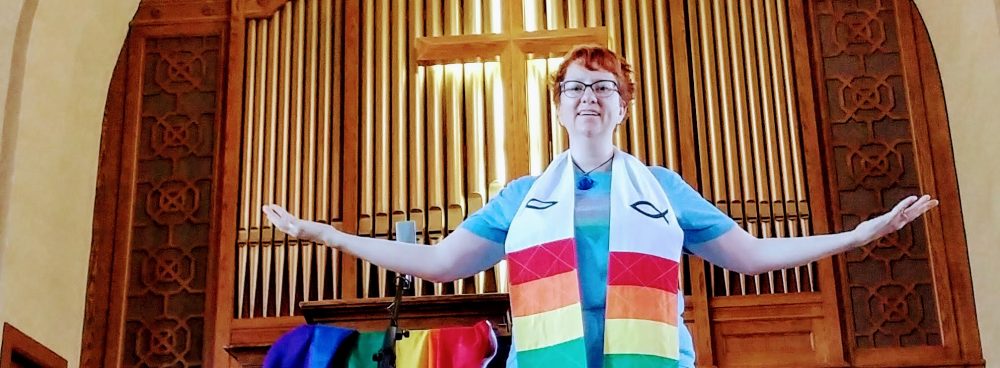In church land, Christmas is a whole season. It begins on Christmas day and runs through January 5. This is also known as the twelve days of Christmas. But we haven’t reached Christmas yet. We are still a whole church season away—just starting advent.
Advent is the time we use to prepare for Christmas. We get out the Christmas decorations, plan meals with family, buy gifts, bake yummy things. I enjoy these parts of our Christmas preparation. But that’s not really the point of advent. As the carol Joy to the World reminds us, advent is about preparing our hearts for the arrival of God among us. “Let every heart, prepare him room.”
Preparing room for the Christ child can be challenging. We have all the things on our to do list….plans to make, cookies to bake, trees to decorate, lights to hang. Sometimes those things, which many of us enjoy, can be a distraction from preparing our hearts and minds for God among us.
And then we look around the world. We see the destruction in British Columbia caused by severe weather and climate change. We hear there is another covid variant traveling the world and stories of death in our own community. Even this community of faith is in a time of change. You can list many more things that shake our lives.
Luke talks about the destruction that is to come. “There will be signs, people will die of fright, anticipation of what is coming upon the earth. The powers in heaven will be shaken. They will see the Chosen One coming in a cloud with power and great glory.” Our fear, concern, and uncertainty at what we see and experience around us are real. They are a natural response to things that unsettle, or even shake us to our core.
We can always anticipate terrible things to come, and we can always find signs of destruction. But if all we experience is fear and uncertainty, we have closed our hearts to hope. The passage invites us to embrace these signs, not as something to fear but, as signs of hope. “When these things begin to happen, look up, and lift up your heads, because your redemption is near.” These are not signs of the end. These are signs of the possibilities to come. In order to see hope, we need to look directly at the signs and see them for what they are.
But God among us will change the world. The destruction in British Columbia is a sign that climate change is real and happening now. It is a call for us to faithfully care for God’s world and make choices that minimize climate change. The new strain of covid is a call to care for the people around us so that we can be safe and minimize the spread of covid. Our faith community in a time of change is an opportunity for creative thinking and choosing a faithful path forward. God among us offers hope but we need to prepare ourselves for that hope.
The hope requires us to see ourselves clearly—to see our part in climate change, in the spread of covid, in our current community of faith.
Once we see ourselves clearly, hope requires us to repentance….my favorite definition of repentance is being in the same situation and behaving differently. We continue to live with climate change. How do we behave in ways that heal the earth rather than destroy? We continue to live with covid. How do we behave in ways that minimize the spread? We continue to live in this community of faith. How do we behave in ways build up and support each other in a time of change?
The hope requires us to have patience with ourselves and others. We will all make mistakes on the journey, but I believe in a God who offers us grace and compassion. That is hope for each of us and the world.
This first Sunday in Advent offers an invitation to hope, “Let every heart, prepare him room.” Look to the signs around us. See the signs not as destruction but as hope of God among us. May your heart prepare a room for the Christ child as begin your advent journey.


